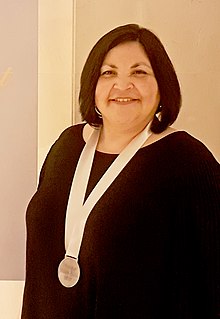A Quote by Judith Guest
Some people have an unrealistic expectation when it comes to getting published; the fact is most publishers will turn down your work which is why you need to be persistent.
Quote Topics
Related Quotes
They believe that if they do get published, a wonderful new life is in store. It will turn out that deep down they are really valuable people and will have lots of money from now on and really cool people like Ethan Hawke will be dropping by all the time. But it's a lie. Being a published writer will make them long to be ONLY as mentally ill as they are now. Their current level of obsession and doubt and self-loathing will look like the good old days. Honest.
In the usual way I submitted manuscripts to publishers. This was not so much a feeling that I should be published as a wish to escape the feared and hated drudgery of "normal" work. In my twenties some of my work for children was published by Macmillan. However, I was twenty-seven before my adult novel, The Birthgrave, was taken by DAW Books in the USA. This enabled me finally to stop doing stupid and soul-killing jobs, and start working day and night as a professional writer. It felt like a rescue from damnation, and still does.
Why waste time proving over and over how great you are, when you could be getting better? Why hide deficiencies instead of overcoming them? Why look for friends or partners who will just shore up your self-esteem instead of ones who will also challenge you to grow? And why seek out the tried and true, instead of experiences that will stretch you? The passion for stretching yourself and sticking to it, even (or especially) when it’s not going well, is the hallmark of the growth mindset. This is the mindset that allows people to thrive during some of the most challenging times in their lives.
I wrote 'Turn Your Radio On' in 1937, and it was published in 1938. At this time radio was relatively new to the rural people, especially gospel music programs. I had become alert to the necessity of creating song titles, themes, and plots, and frequently people would call me and say, 'Turn your radio on, Albert, they're singing one of your songs on such-and-such a station.' It finally dawned on me to use their quote, 'Turn your radio on,' as a theme for a religious originated song, and this was the beginning of 'Turn Your Radio On' as we know it.
Realizing your goal, resolution, or transformation is a journey. Change, like any meaningful endeavor, proceeds sequentially through steps. The journey begins with the contemplation stage of specifying realistic goals, getting ready, or getting psyched. The planning stage is all about prepping. How exactly will I do this thing? At some point you will jump from preparing and planning to perspiring, the work of implementing the new, desired behavior. Getting there is wonderful, but we need to keep you there, which entails persevering through slips and, finally, persisting over time.
You can't actually hire and fire people inside of an open source community. Which means that getting people to work together is much more along the lines of making sure that people have the tools they need both to get their work done but also to know what is being done by other people and how to take that to their employer and tell that story to their employer and to show this is why the community is good and this is why we're working on these sort of things because it helps us over here.






































